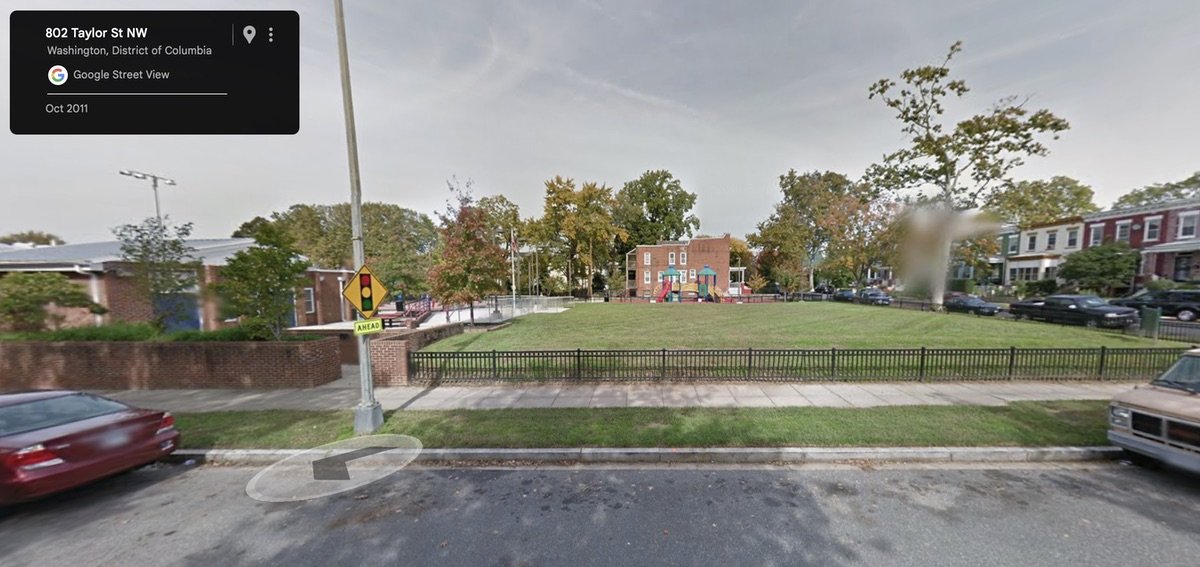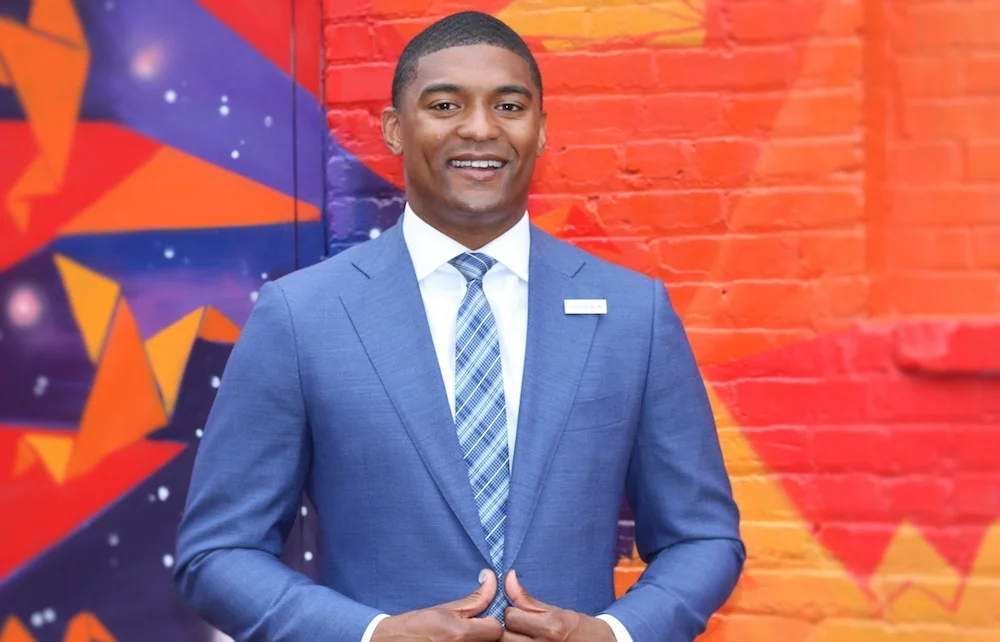Marcus Goodwin - Petworth News interviews DC Council At-Large candidates
/From the Editor: Every year, Petworth News covers the local elections that impact our area. This year is no different, as we have At-Large and Chair positions up for election, with the primary being June 19th. To help voters know as much as possible, Petworth News is offering brief interviews with Democrat candidates Anita Bonds, Marcus Goodwin and Jeremiah Lowery, published in random order. (Other parties will be profiled near the general election.) We are not endorsing any candidate, as Petworth News remains neutral in order to provide objective news and information so readers can be informed. Writer Robinson Woodward-Burns spoke with each candidate. Here's the next interview...
Marcus Goodwin, candidate, At-Large DC Council
(photo courtesy of the candidate)
Robinson Woodward-Burns: Tell me a little bit about your background and why you are running
Marcus Goodwin: I grew up between Columbia Heights and Congress Heights. I’m the fifth of eight kids in my family – four of us finished in public schools and four finished in private schools, and the four who finished in private schools got college degrees and a few of us have masters degrees, while the four in public schools haven’t yet finished college, so I’ve seen different levels of educations attainment based on the kinds of school we attended. That’s profoundly impacted my life because my parents always reminded me education affects your opportunities.
I’m also focused on ensuring the development of DC happens equitably so that everybody is part of this renaissance. I’m running against the chair of the Housing and Neighborhood Revitalization Committee because I have more experience in building, financing, and delivering affordable and mixed income units than anyone on the Council. When I graduated from the University of Pennsylvania I went on to work in investment banking at Morgan Stanley, learning how cities finance their development projects and how the business of banking moves. But I was disenchanted after a few years in New York and wanted to be back in DC. And in college I had worked for Councilmember Jim Graham’s office, and then in the Deputy Mayor’s Office for Planning and Economic Development, working on the New Communities Initiative that sought to redevelop neighborhoods like Barry Farms.
How do you think the council should address affordable housing needs?
My base priority is to build and preserve as many units as possible, to match the number of people that are coming into the city, and to accommodate the people that are most at risk of displacement and most inclined to leave. I want to make sure that they can afford to be there. A lot of people can’t afford to be here because they are in working class careers, and I think it’s a shame that we’ve left them with the option to make it or leave. I do want to focus on economic mobility, and I’ve seen it in my family in just one generation.
We are also horribly behind on the production of affordable housing units. I’d like to have a tested and studied direction to go in for producing affordable housing units, not just an arbitrary $100 million commitment to the Housing Production Trust Fund. We need to be strategic and be sure we have a significant reason for our actions. People are fine with taxes in DC, and even the cost of living, but they see poor roads, poor schools, lack of access to affordable housing, inability to hire staff in their business, and so they’ll move. We need to give a full complement of opportunities so people can realize economic success.
How would you define gentrification? Do you believe Ward 4 and in particular, the Petworth, Brightwood and Shepherd Park neighborhoods, are experiencing gentrification? If so, what is the impact of this?
Gentrification is a tricky word. It’s absolutely happening, but there’s much misunderstanding as to why it’s happening. We have a lot of bad actors who in pursuit of profits raise rental and condo prices without thinking about how this will affect the fabric of the neighborhood. So I think its incumbent on the city and community to have voice in whether a project is suitable for that community. People hate pop-ups, so we need to get to a point where conversation is more equitable. People want to take back their neighborhoods, and they should have a voice.
What is your opinion of "pop-backs"? (Whereby homeowners or developers are extending the rear portion of homes by ten feet or more.)
We need to be sure that the architecture of these buildings is consistent with what people are familiar with and what matches surrounding buildings. We need to have some standards.
What are your priorities for transportation issues in DC?
I’m a biker, but my mom can’t bike every day to work. We have to be conscious and sensitive to the needs of bikers and make sure the road is accessible to them, but also need to be cognizant of our senior citizens who don’t often bike. We need to make sure they have Metro Access vans and private shuttles for their daily tasks. It’s incumbent on the city to make sure they have these opportunities. I’m not consistently a proponent of killing driving lanes because traffic in the city is already bad enough, but we do have wide sidewalks that can be cut back a few feet so that bikes, walkers, and drivers can coexist. We also need to be careful with transit-oriented development and be sure that we’re not overbuilding in low-density residential neighborhoods, but more so around places accessible to transit, especially when building homeless shelters.
What are your thoughts on dockless bikes and scooters?
I think dockless bikes are great, and I’d like to expand access east of the river. Dockless scooters get left on sidewalks, where people trip over them. We need some better societal practice as these technologies emerge so that people are not just carelessly using them
What are your priorities for environmental issues in DC?
My father was an EPA scientist, so I grew up cleaning the Anacostia watershed and Potomac River. I think the bag tax has gone successfully, so I’d like to push for a bottle tax of five cents per bottle. If we can commit to this, we’d have fewer bottles end up in our sewers and have better behavior from people. We should also have a bottle return program, and in Beijing I’ve seen in transit station bottle returns can be reimbursed for free rides, credited to your transport pass. I’d like to see that as a pilot in one station.
Any additional thoughts you'd like to share?
I worked in the private sector to better understand the underpinnings of our economic renaissance, I see this as an opportunity to return the knowledge I’ve learned in order to maximize community benefits.
This interview has been edited for brevity and clarity.























